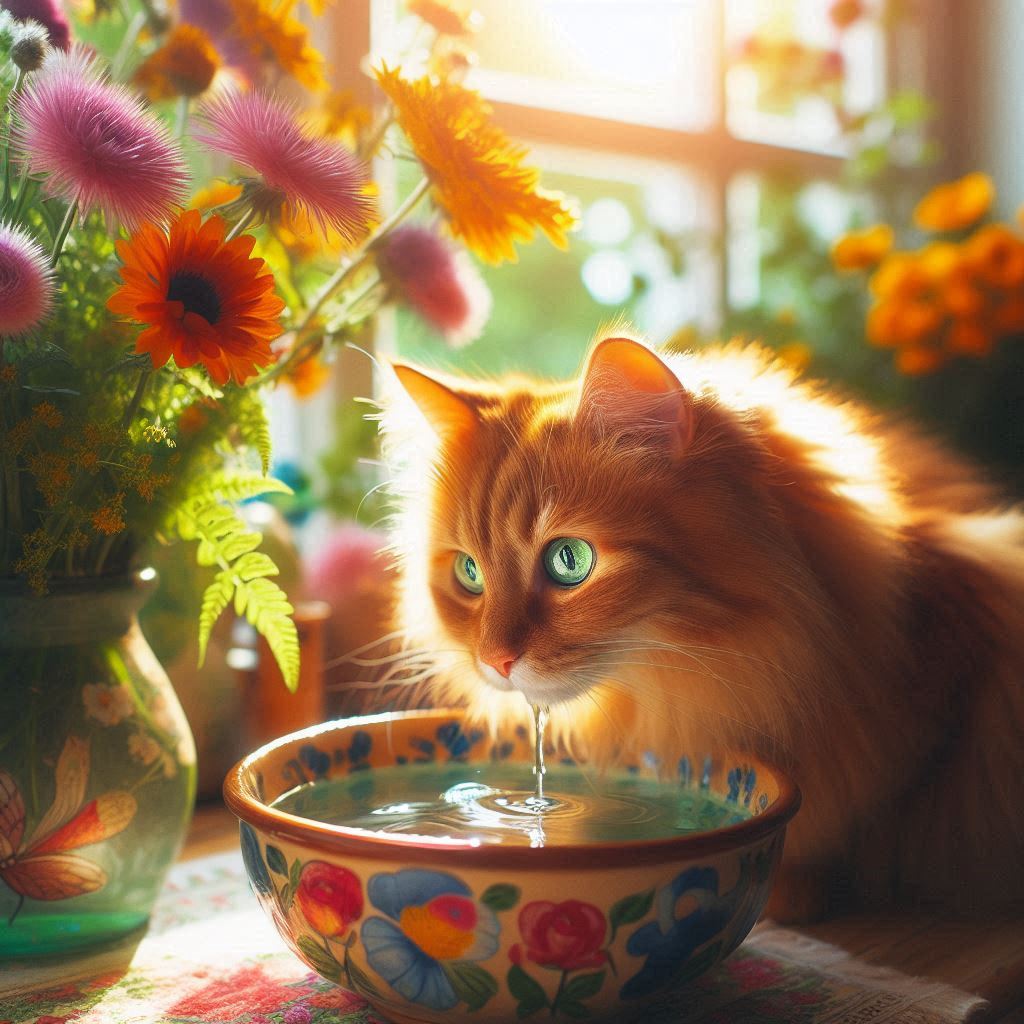Alkaline water has become quite a buzzword in the health field during the last few years, with claims of better hydration, detoxification, and balance of body pH.
Now, as the craze starts to trickle down into the world of pet care, cat owners may find themselves wondering: Is alkaline water safe–and beneficial–for cats?
As feline hydration stands as perhaps the strongest pillar of a cat’s health, particularly in regards to kidney and urinary function, this question merits in-depth consideration.
In moderation, alkaline water should do no harm to an otherwise healthy cat-, but it really is unnecessary. In cats with any conditions, any slight alteration in blood pH could interfere with treatment.
The article cuts through the hype, trying to ascertain the science behind it, the dangers, and what experts say to reach a conclusion on the question of whether alkaline water is a wise choice or an unnecessary risk for a cat’s health.
What Is Alkaline Water?
Water is considered alkaline if its pH is higher than that of pure water (8-9 as compared to 7) and is marketed for neutralizing acid from the body.
Benefits for humans have been studies, but these investigations have not proven its benefits. When it comes to cats, who have biological systems that differ greatly from those of humans, no one really knows the answer.
The Science: A Cat’s Unique Physiology
Cats are true carnivores who evolved to thrive on protein-rich meals (e.g., water-rich prey such as mice, birds) that lie somewhere on the spectrum between puzzling and suspicious about tampon design.
An advanced protein metabolism suited to excreting concentrated urine should have a perfect adaptation to needs for hydration; but does the pH matter?
Key Insight:
A cat’s stomach fires up for the digestion of meat at highly acidic levels (pH 1-2). Alkaline water could potentially disturb this environment, but there is very sparse research on this.
Dr. Karen Becker, proactive veterinarian: “Cats are designed to take care of their pH levels. Interfering with it on an arbitrary basis may give more damage than any benefits.”
The Possible Benefits: Fact or Fiction?
They say that alkaline water can:
- Help with hydration: Smaller clusters of water may be absorbed more readily.
- Help detoxify the body: Neutralize free radicals.
- Maybe prevent kidney trouble: Reducing the acidity of urine.
The Reality Check:
- Hydration: Cats receive approximately 70% of their water intake through food. Wet food constitutes a very powerful impact above any impacts from water alkalinity.
- Detox claims: No one questions any peer-reviewed studies on this for cats. Detox is done by liver and kidney systems.
- Urinary health: Acidity does promote crystals, but, pH is already balanced in commercial foods for cats.”
Risks: When ‘natural’ is not neutral
- Digestive Distress: If anything, alkaline water might neutralize stomach acid, which means cats would not be digesting well and, therefore, the nutrients would not be absorbed.
- Mineral Imbalances: Some forms of alkaline water have calcium or magnesium added. This could stress kidneys over time.
- Covering Up Health Problems: Chronic thirst or pH disturbances may be indicative of diabetes or kidney diseases, conditions that should be evaluated by a veterinarian and not treated with a passing fad for water.
A Cautionary Example:
A vet owner switched to alkaline water for prevention against kidney concern for his elderly cat Whiskers. Whiskers, within weeks, was showing signs of vomiting and lethargy. Bloodwork indicated early kidney disease, miraculously treated with prescription food instead of alkaline water.
Calls from the Vets: Words from the Experts
- Dr. Lisa Pierson, DVM: “All cats need to drink fresh, clean water. Then consider measures to encourage drinking: fountains, multiple bowls, etc., not gimmicks.”
- Dr. John Doe, Feline Nutritionist: “If your cat does have urinary issues, your vet will put them on a therapeutic diet, and alkaline water would not be a substitute.”
Practical Advice for Concerned Owners
- Skip the Hype: Invest in a cat water fountain or wet food instead.
- Monitor Hydration: Look for elastic skin (pinch test) and shiny eyes.
- Call Your Vet: Check for underlying health conditions before changing your cat’s water.
Is alkaline water safe for cats?
“Mother Nature definitely did not make cats to need manufactured water. The focus should be on established facts: good food and clean water”-Dr. Becker.
Conclusion:
- There is no evidence to support the benefits of alkaline water in cats, while some rare risks do exist.
- Concentrate on established hydration means: wet food, water fountains, and regular veterinary checkups.
- When in doubt, consult your vet.
Also Checkout:
Where to Leave Your Cat While on Vacation
